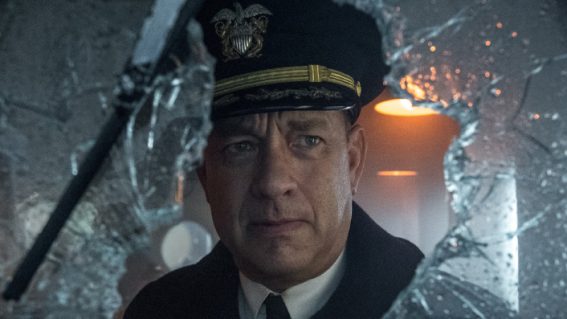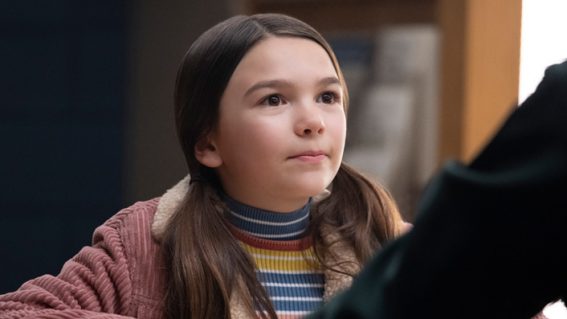Rose Byrne is pitch-perfect in acidly dark aerobics show Physical
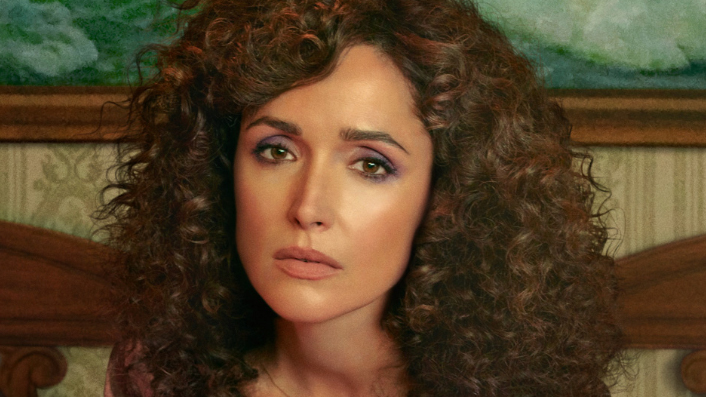
Rose Byrne leads Apple TV+’s new dark comedy series Physical as a woman in the 1980s who breaks free from her rut by crushing the world of aerobics. It is hard to imagine how a show this frothing with cynicism would play were it not for Rose Byrne, writes Katie Parker.
When we first meet Sheila (Rose Byrne) in 1986, she is in the midst of a moment of euphoria: clad in a purple spangled leotard, hair teased over a thin purple headband, and bathed in hazy purple light, she is ready to be filmed leading a theatrically lit aerobics class full of perfect, bouncy ladies—a vision of perfect 80s womanhood. Yet it is quickly revealed that this is merely a premonition, a taste of things to come. Suddenly, unceremoniously, we find ourselves back in time (1981 to be specific) when things are looking very different for Sheila.
See also:
* All new streaming movies & series
* Movies now playing in cinemas
Still mourning her glory days as a radical 60s academic star and increasingly resentful of her gormless, useless husband Danny (Rory Scovel), their young daughter, and their new lives in conservative Regan-era San Diego, Sheila is stuck—stuck in the past, stuck in her marriage, and stuck in a spiral of acute self-loathing.
But then she makes a discovery! With a background in ballet and in desperate need of an outlet, Sheila finds relief in the lurid, fluro world of the local mall’s aerobics class. Quickly her enthusiasm (and latent aggression) sees her muscling in on the business, teaching classes and filming her routines for the masses. With the rise of home video just beginning, it’s clear that Sheila has hit on something big—and, against the odds, is going to ride that campy wave all the way to the bank.
Ostensibly, at least, this is the story that Apple TV+’s cheerful, retro marketing is selling you—a blackly comic yet vaguely goofy tale of an underappreciated housewife’s triumphant rise to the top. To be honest I can hardly blame them considering how bitterly, acidly dark Physical actually is.
“You’re nothing. You’re worse than nothing, you’re a ghost. A fat ghost.” From the moment we join Sheila in her domestic hell, we are granted access to her innermost thoughts—a monologue that is delivered in an almost constant stream throughout the series’ 10 episodes. It’s pithy and droll, yes—but also incredibly bleak.
The vast majority of Sheila’s thoughts are along these lines, berating herself and others for failings and flaws that most of us would barely notice, particularly in relation to her own appearance. The effect is a pervasive grimness matched only by the show’s most harrowing scenes, in which our heroine indulges in her favourite ritual: escaping to cheap motels in the middle of the day to binge and purge multiple fast food combo meals.
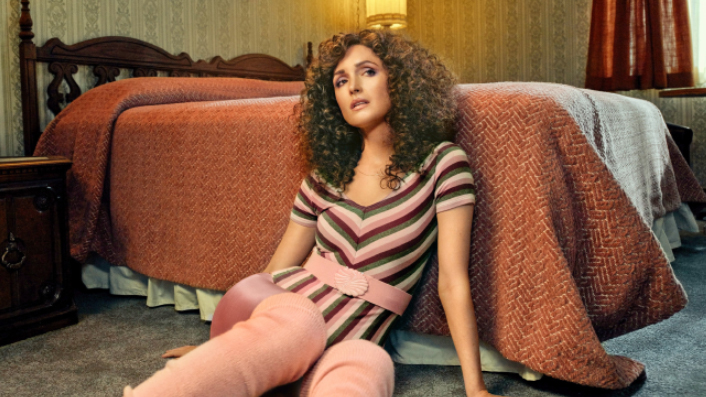
These sequences, repeated in jaunty montage with enough frequency to form a macabre kind of motif, occur when Sheila reaches the depths of her self-loathing—a final act of debasement for a woman who is debased daily by her husband, her friends, and most of all by herself.
Aerobics, as you might imagine, is not actually a solution to this, nor is it Sheila’s salvation. Feeding her obsession with her body and offering brief breaks from her miserable domestic situation, it offers a kind of escape, one that brings her into the modern age and makes her the envy of many of the women around her—but make no mistake, Physical is not an empowerment narrative, but rather a wry portrait of a very sick, cynical woman.
There is, of course, nothing wrong with this as such—and in fact, in many ways, the actual project of Physical is a lot more interesting than the one suggested by its marketing. Still, it is hard to imagine how a show this frothing with cynicism would play, or if it would even be watchable, were it not for Rose Byrne.
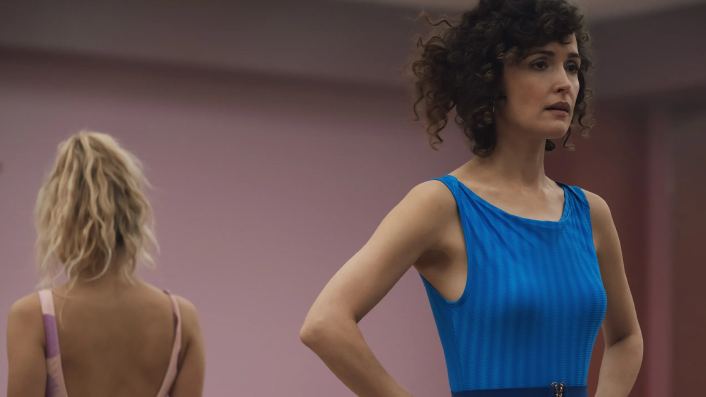
Ah, Rose Byrne. Perennially underused, underappreciated and, in my opinion, one of the best character actors in Hollywood who hardly ever gets to play an actual character, she recently hit the headlines for something unrelated to her transcendent talent: the news of her starring role as Jacinda Ardern in the wildly ill-advised project They Are Us, a film aiming to tell the story of the Prime Minister’s days following the 2019 Christchurch terror attack.
As we all now know, no sooner had it been announced than the project was swiftly, decisively, and correctly rejected by the New Zealand public—and Byrne suddenly became the face (or the thumbnail, usually side by side with apparent look-a-like-Ardern) of the glibbest cinematic endeavour of all time.
If she’s now dead to you, well, I semi-understand. If not, and if you can live with the fact that her decision-making skills may not be so sharp, Physical is proof that Byrne is a true talent, and perhaps one of the only actresses capable of making Sheila’s devastating spiral watchable, even enjoyable. Often performing in silence alongside her own voiceover, she is pitch-perfect at every turn—her huge bright, expressive eyes imbuing even the show’s nastiest moments with a recognisable humanity and thankfully mitigating many of the shows more off-putting moments.
And there are off-putting moments a-plenty. In addition to Sheila’s routine abuse of herself, we are subjected to seemingly endless scenes of her casual mistreatment at the hands of her own family and friends, none of whom seem to be even remotely attuned to the level of pain radiating off her.
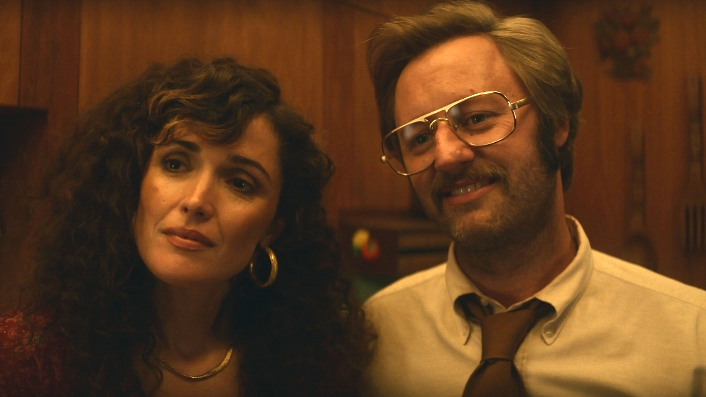
In a subplot that somehow takes up more narrative time than Sheila’s own entrepreneurial ascent, for instance, her chauvinistic husband runs for political office, acquiring a perpetually braless groupie and a misogynistic campaign manager in the process. Sheila, at once the brains of the operation and cruelly relegated to the side-lines, is dismissed, overlooked, talked down to and generally disrespected—and sometimes it feels as though every scene has been written with the goal of giving the viewer their own taste of Sheila’s palpable frustration
Overall, many of Physical’s instincts are not wrong. The female anti-hero trope, once unseen and now tired and overplayed, rarely takes its characters into truly dark territory, and too often mistakes unlikability for empowerment. Sheila is not so much a ruthless tycoon as she is a woman in survival mode and Physical’s depiction of her plight is as unflinching as it is understandable, particularly as we discover the painful—and, again, very dark—past that led her to this point. As a period piece too, the show’s critique of 60s radicals turned 80s sell-outs is sharp and incisive, while the inherent cynicism of local government is lambasted mercilessly.
With strong supporting characters—Lou Pucci Taylor and Della Saba are both great as Sheila’s business partners, while Dierdre Friel is a much-needed ray of light as Sheila’s affable new friend—Physical isn’t always a total downer and, when it gets it right, can even be wickedly, deliciously funny.
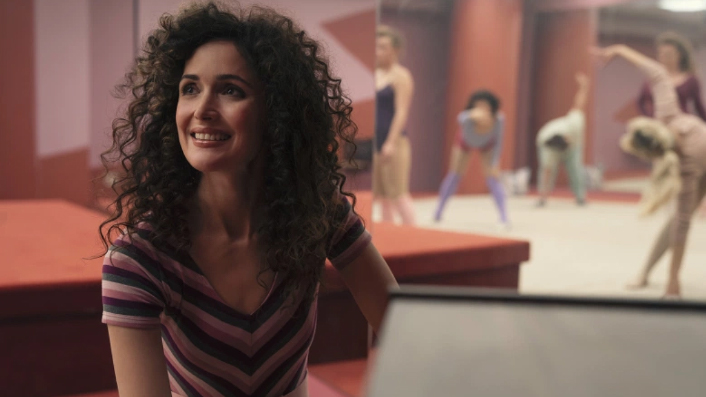
Unfortunately, however, once it has all its plates spinning, Physical struggles to know what to do with them, and episode after episode tells more or less the same story: Sheila, having spent the family’s savings on her secret motel jaunts, must urgently obtain money to help launch her business and keep her husband’s campaign afloat—and invariably ends up resorting to bad behaviour and bad old habits to make it through the crisis.
With its underlying nastiness and brutal depictions of traumatic and triggering subject matter, it is perhaps a testament to Physical’s success that it left me feeling unsettled and anxious in a way I did not expect from a show about aerobics. In an incredibly competitive TV landscape, it is a bold and audacious entry, and this, I would argue, is something to be admired. Still, my advice is to approach Physical with caution—if you like what it offers, then it has it in spades; if you don’t, well—you’re in for a world of pain.


